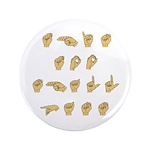It used to be that you would do a search on a relevant subject and get blog posts, forums posts, and maybe a couple of relevant companies offering the product or service. (And if you wanted more information on said company you could give them a call and actually talk to a real person about said service) You could even trust amazon and yelp reviews. Now searches have been completely taken over by Forbes top 10 lists, random affiliate link click through aggregators that copy and paste each others work, review factories that will kill your competitors and boost your product stars, ect… It seems like the internet has gotten soooo much harder to use, just because you have to wade through all the bullshit. It’s no wonder people switch to reddit and lemmy style sites, in a way it mirrors a little what kind of information you used to be able to garner from the internet in it’s early days. What do people do these days to find genuine information about products or services?


I think it’s becoming a lost art … but basically, you need to go by reputation. Pick well known sites that you trust, compare what they say about the subject, don’t even base your opinion on just one random blog article or tweet / reddit / lemmy post.
For some, Wikipedia is trustworthy since it (usually) cites its sources and has a pretty good track record, while for others it’s not to be trusted, cause anyone can edit it. In the end it’s up to you what you trust. Another example: The CDC (in the US) can be considered trustworthy for health information, being an official government agency, but many also don’t trust it as it has become more politicised and so, biased. Again, you decide what to trust, and always consult at least two trusted sources, more is better.
For product reviews, I simply don’t pay much attention to the star rating, but instead, read the actual reviews, and sort them chronologically so I read the most recent ones. Check that they are actually reviewing the product / service you think they are, as there are ways to get good reviews then “switch” the product listing (amazon) and other similar tricks. Check if it seems plausible, level-headed, or if it’s just someone being angry, or likely fake. Like I said, it’s an art, not a science. Sometimes, you have to actually buy the product / service and judge for yourself, then compare your experience with the reviews, and you’ll learn to tell the truthful reviews from the fake or unreliable.
A tip regarding Wikipedia is to check the edit history if the last edit was made very recently since it could be spam that no one spotted yet.
It is also a good idea to make sure the article is not the subject of an edit war.
https://en.wikipedia.org/wiki/Wikipedia:Edit_warring